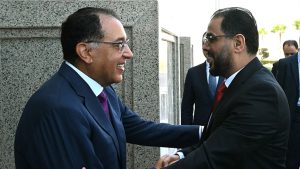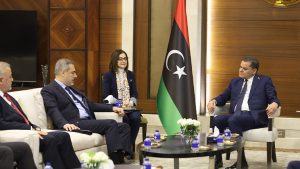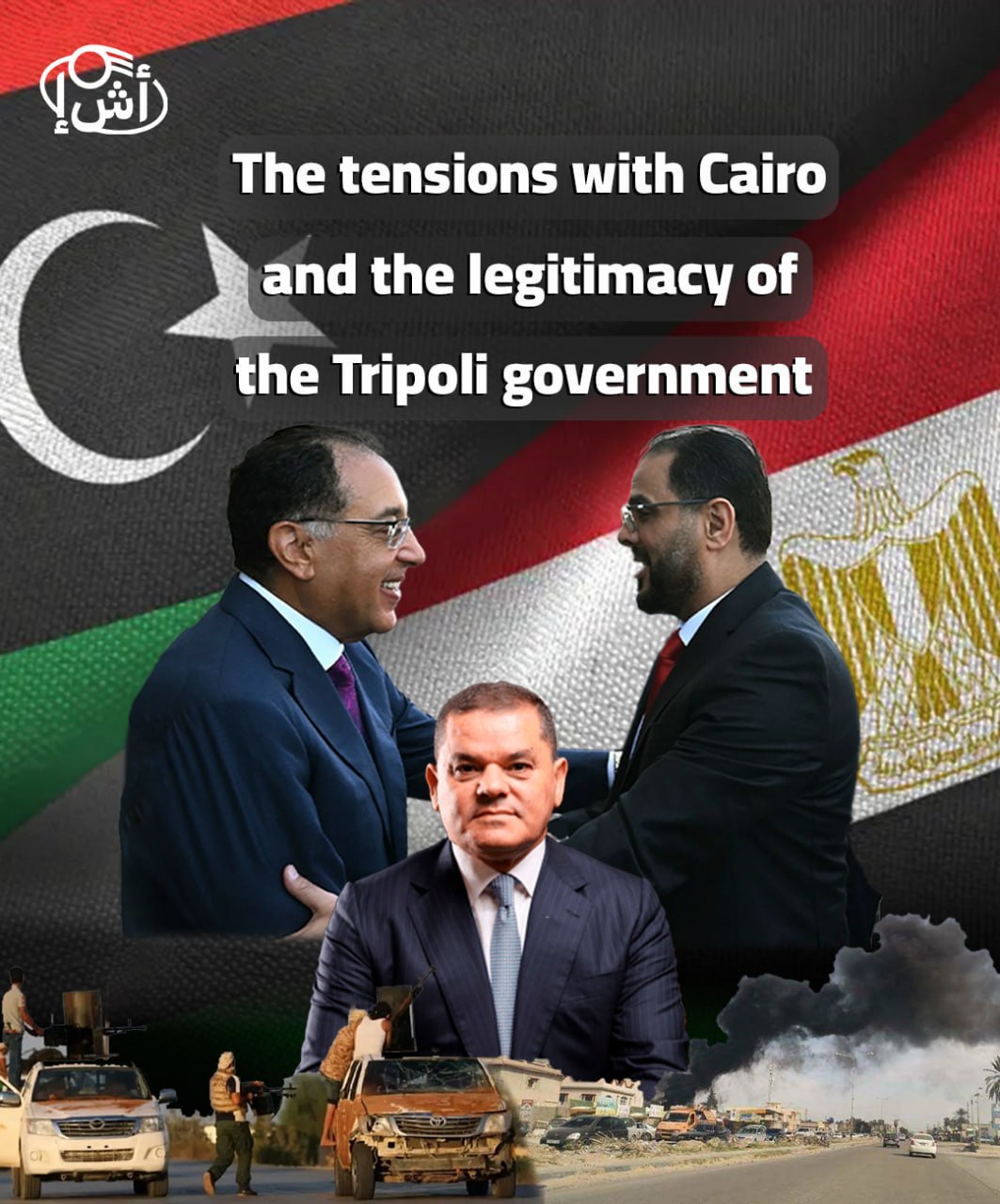The expired Libyan Government of National Unity in Tripoli has sparked an unprecedented political storm in the course of Libyan-Egyptian relations, creating real doubts about the legitimacy of Abdel Hamid Dbeibeh’s government.
The tension created by Tripoli against the backdrop of Egyptian Prime Minister Moustafa Madbouli’s reception of the Prime Minister-designate of the House of Representatives, Osama Hamad, constitutes a kind of coup against the Egyptian political role more than it is an internal Libyan confrontation.

The political indicators, especially within the Libyan State Council, began with the coup of the former head of the Council, Mohamed Takala, against the Cairo agreements, and the current escalation falls within the framework of breaking regional balances and their relationship with the political solution to the Libyan crisis.
Tripoli and Legitimacy Issues
Although the Dbeibeh government is trying to rely on an international reality that considers Tripoli to represent Libyan foreign policy, the current reality gives a different path, with the state of security chaos that western Libya is experiencing in general, and the political contradictions within the political structure in Tripoli create doubts about the legitimacy of the political representation of the Dbeibeh government at the regional and international levels, and the current violent reaction towards Egypt is the result of a real fear of Tripoli losing its political weight, at least regionally.

In practice, Egypt has played a key role in supporting stabilization efforts in Libya, as the two countries share economic ties and Egyptian companies are contributing to reconstruction efforts.
Egypt has traditionally supported the government in the east, viewing it as a more stable and legitimate entity, especially in the context of ongoing violence and the presence of extremist factions in the western part of Libya, but this support has not taken an escalatory turn as Egypt has remained a mediator between the two parties, and has sponsored many understandings between the Libyan parties.

The current diplomatic escalation between Tripoli and Cairo stems from the assumptions of the Dbeibeh government that the reception is a direct challenge to its authority and a violation of international standards that recognize the Government of National Unity as the legitimate government of Libya. It was clear that the reception carried an indication of Egypt’s support for the government in Benghazi’s demands for a more objective political balance, and the belief that the situation in Libya requires internal solutions and not Western influence on which Tripoli relies to prolong the Dbeibeh government’s term.
Expulsion of Egyptian diplomats
Tripoli’s response was violent, as the Dbeibeh government took the radical step of expelling several Egyptian diplomats, including intelligence officials, from its territory. This step is unprecedented and constitutes a sharp deterioration in diplomatic relations.

The Foreign Ministry of the outgoing Government of National Unity issued a strong condemnation of Egypt’s actions, accusing Cairo of undermining Libya’s sovereignty and exacerbating the internal divisions plaguing the country. The government in Tripoli claimed that Egypt’s actions were not only a violation of Libya’s national integrity, but also a departure from the international consensus that supports a unified Libyan state under the leadership of the Government of National Unity.
The decision by the Government of National Unity to expel Egyptian diplomats highlights the fragile nature of the political environment in western Libya. Challenging Egypt as a powerful neighbor with significant influence in regional politics risks further isolating the Tripoli government. Egypt’s support is crucial not only for Libya’s economic recovery but also for maintaining regional stability.
For Egypt, this diplomatic spat will slightly complicate its strategic interests in Libya, as it has invested heavily in the stability of its western neighbor, both to secure its borders and to maintain its influence in North Africa.
By supporting the government in Benghazi, Egypt aims to ensure that Libya remains a stable and friendly country, but expelling its diplomats from Tripoli limits its ability to mediate and exert influence across the entire Libyan political spectrum. The complications that will emerge later will come as a result of the alliances of the Dbeibeh government, along with Turkey, which has interests in preserving the authority of the Dbeibeh government. This development will lead to a deeper entrenchment of foreign powers in Libya’s internal affairs, making a peaceful solution to the conflict more difficult.

The government in Tripoli faces a difficult situation, as it faces the challenge of addressing the growing legitimacy of the government in Benghazi, which has been strengthened by Egypt’s support. The deep divisions within Libya and the broader regional power struggles that continue to affect the country’s future cannot be resolved by escalation against influential regional states such as Egypt. The political recklessness of the Tripoli government is dragging Libya into futile confrontations that prolong the political crisis and reflect its desperation to assert its legitimacy amid growing challenges from the eastern government.
By Mazen Bilal
The Arab Parliament welcomes the outcomes of the meeting of Libyan leaders in Cairo
